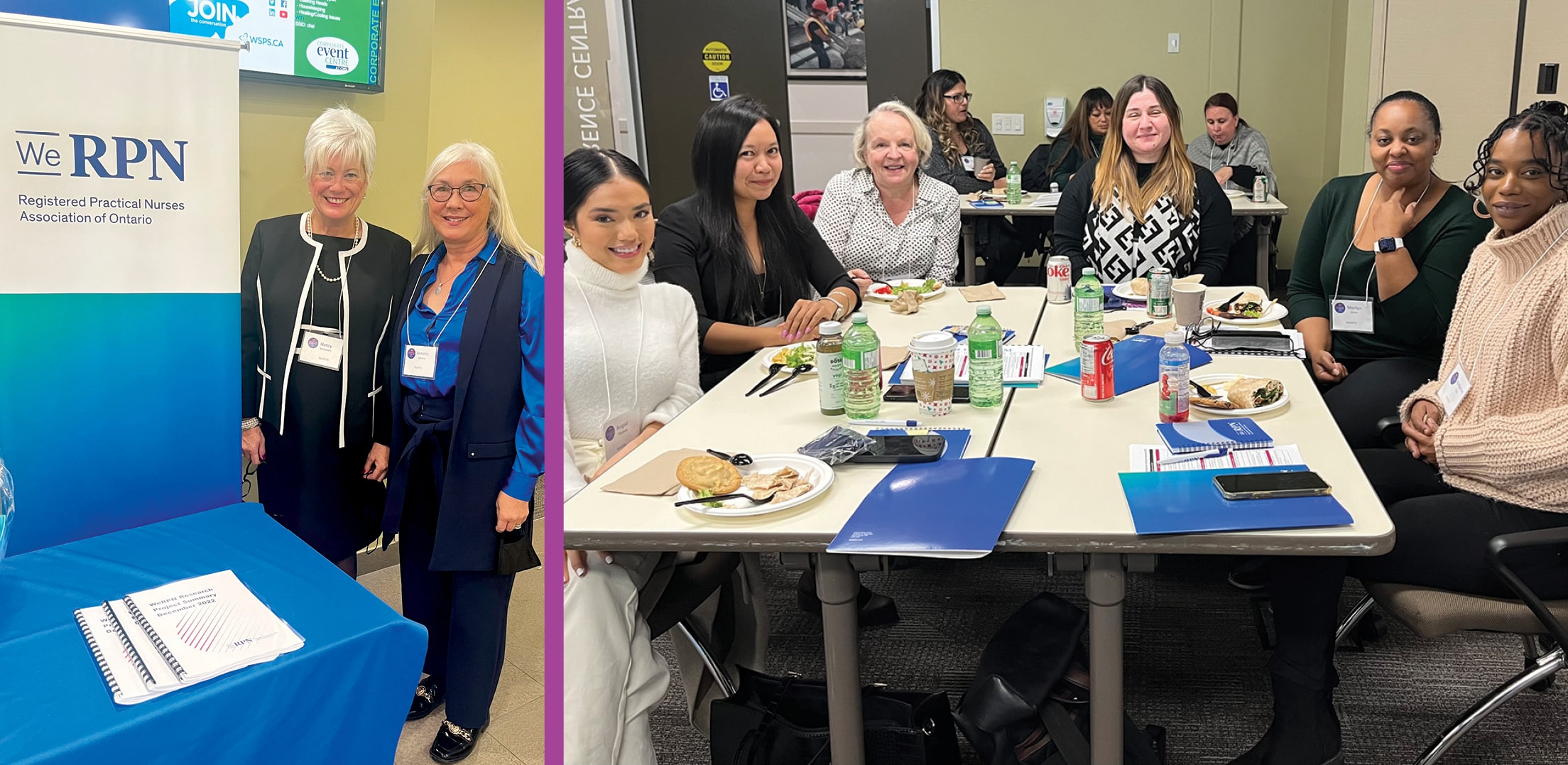WeRPN is committed to increase the body of knowledge about the utilization of RPNs, optimization of the RPN roles and the impact and value of RPN interventions on client outcomes across the sectors in our health systems. In December, the association hosted a research symposium to highlight and disseminate findings from key RPN research that has been catalyzed with WeRPN’s support.
Dr. Elizabeth Peter and Dr. Don Rose from the University of Toronto shared the findings of their research on the moral distress experienced by nurses during the pandemic, especially those working in long-term care homes. They identified strategies to reduce moral distress and presented the perspectives of 20 RPNs interviewed in the study.
Dr. Behdin Nowrouzi-Kia from the University of Toronto and Dr. Basem Gohar from the University of Guelph presented their study’s preliminary findings on the pandemic’s impact on the mental health of RNs and RPNs in northern Ontario. They discussed the responses of nurses and the most significant changes in their lives as a result of COVID-19.
Dr. Denise Connelly from Western University presented how RPNs working in LTC homes adapted to the pandemic and developed resilience during personal, professional and institutional crises.
Her presentation drew on quantitative and qualitative data from 434 RPNs and identified facilitators, barriers and suggested resources and support to help build resilience among RPNs. Dr Connelly in partnership with Christina Khan, RPN, also presented on building knowledge about rehabilitation nursing from the RPN perspective.
Jen Calver, RPN, Ph.D. (student), GPNC(C), and Samantha Salatino, RPN, MScHQ, presented a resilience guide that WeRPN developed to support the recruitment and retention of RPNs in long-term care homes. The guide provides a framework to build systems of organizational resilience based on the evidence from the Connelly et al., 2022, Social Science and Humanities Research Council of Canada’s Specialty COVID-19 Partnership grant. In collaboration with Farzana Rahman, she also presented on Staffing Stability in Long-Term Care.
JP Munro and Norma Tomlin from WeRPN presented the WeRPN Resilience Initiatives Program, which includes self-care and resilience resources to support front-line healthcare workers at an individual and team level. They discussed how certified WeRPN Resilience Practitioners can implement these resources, including an online app, with a dedicated team of RPNs at a long-term care facility.
Dr. Denise Connelly from Western University also presented the experiences of RPNs implementing virtual PIECES™ care planning in longterm care homes during the pandemic. Her presentation discussed promising practices designed to keep residents, families, caregivers and staff safe from COVID-19 by engaging with residents and families, multidisciplinary professionals, RPN champions and administrative staff.
Dr. Josh Wyman, from Western University, highlighted opportunities for improving the identification, assessment and reporting procedures in instances of potential elder abuse. Frances Bruno, RN, PhD, discussed opportunities to grow the supply of home care RPNs through employer based education assistance.
Overall, the symposium provided an important platform to discuss strategies for leveraging RPN knowledge in different roles, building resilience and reducing moral distress. WeRPN looks forward to continuing to grow the body of evidence on the incredible contributions of RPNs through its research strategy.
